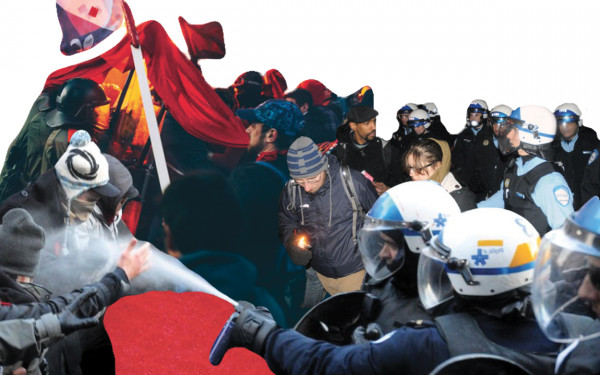Black History Month: Discussion questioned what it means to be Black
African Students’ Association of Concordia hosts conversation focused on better understanding individuality in Black community
The African Students’ Association of Concordia hosted an open discussion asking “How do you define Blackness?” with the goal of strengthening their connection to the Black community at Concordia.
“Regardless of systemic barriers, I know I can do anything because I have generations and generations of ancestral support and people who want me to thrive,” said CSU general coordinator Isaiah Joyner, who kicked off the discussion touching on what it means to be Black.
ASAC Vice President Ugonna Maduabuchi, explained the importance of holding this discussion was to understand differences in experiences and identity, and how they can be used to uplift the Black the community. “Instead of using this to tear each other apart and decide what is Black enough or what isn’t Black enough, we should all appreciate and understand the space we occupy and use this to amplify other voices in our community,” she said.
Maduabuchi said the inspiration behind coordinating this event stemmed from seeing so many arguments about what it means to be Black. She hosted this discussion in hopes of allowing the chance for members of the Black community to be more aware of one another's experience and empathetic towards those differences.
“It’s an amazing feeling, knowing we have such a rich heritage and rich culture and such talented genetics,” said Joyner. The event welcomed three panelists to provide personal input, one of whom was Joyner.
“Instead of using this to tear each other apart and decide what is Black enough or what isn’t Black enough, we should all appreciate and understand the space we occupy and use this to amplify other voices in our community.” — Ugonna Maduabuchi
In addition to the panelists’ input, there was no shortage of opinions when it came to attendees participating in the discussion. Varying views and opinions were expressed throughout the two-hour discussion, especially when it came to how people felt about the use of the N-word.
“The way I like to see it is if just by looking at you, you don’t have to explain to me that you're Black, then you can say the N-word,” said one panelist. “Because when you say it outside you won’t have the chance to say ‘I’m Black so I can use the word.’ No. [...] You might get slapped before you get the chance to explain that you’re Black,” they continued.
Some participants said they were offended by this remark, while others replied with their own opinion.
“Personally I don’t say the N-word. I don’t say it often, actually pretty rarely,” said another panelist. “I feel in a way it’s so problematic that I wouldn’t advise people say it.”
The topics within defining Blackness ranged from colourism, misconceptions of white-passing and light-skinned people, and the effects of individual experiences within one collective. None of these topics were addressed as much as whether or not the participants felt the N-word was hurtful or empowering to the community.
“Although I look about as Black as you can look, I have constantly been told that I don’t act, think, or talk ‘Black,’ and in effect my Blackness has often been questioned by Black and white people alike.” — Peace Buntu
“We should not let academic institutions define our own debate,” said one participant. “The next time you see a white professor believing it is in their right to say the N-word to start a discussion, it’s probably not. They're trying to claim space in a territory they have no right to in the first place.”
Many participants left impacted by the discussion, just the way Maduabuchi hoped they would.
“I gained encouragement that there is, in my community, people who are ready and willing to have these tough discussions and begin the journey to education and reconciliation,” said Peace Buntu, a third-year biochemistry student at Concordia. She said she felt it important to attend this discussion since it has such a direct connection to her life.
“Although I look about as Black as you can look, I have constantly been told that I don’t act, think, or talk ‘Black,’ and in effect my Blackness has often been questioned by Black and white people alike,” said Buntu.
Maduabuchi stressed that the better individual experiences within the community are understood now, the easier it will be to teach generations to come what it is to be Black and how to uplift the community.
“I feel if we have the conversation now and sort out moments of contention, things people don’t understand, and things that could bring animosity, it will be easier not only to educate your kids, but to build a world that is better for every person whether they are Black-presenting or white-passing,” she said.

_500_734_90.jpg)




